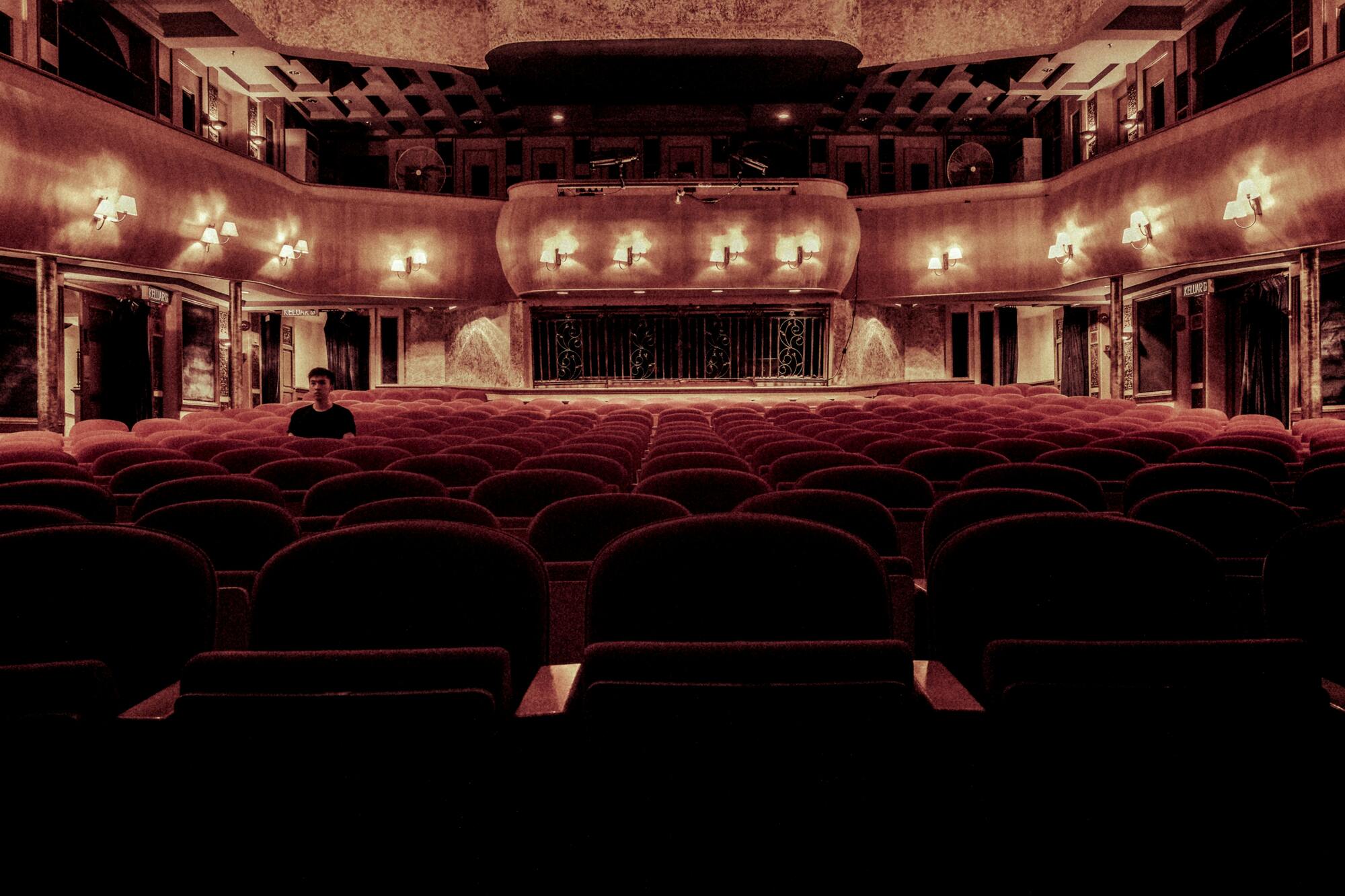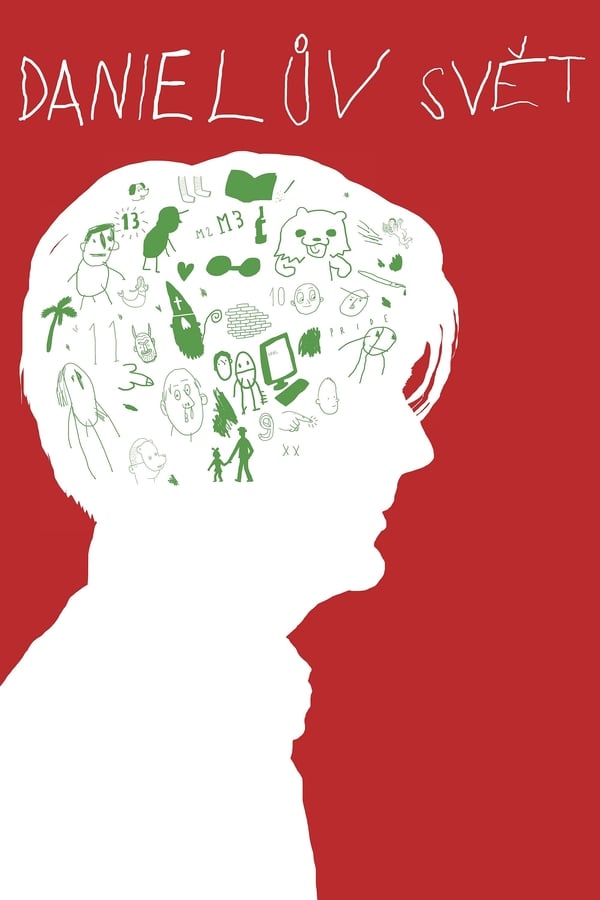Oppdag hvor du kan se Miloš Forman: What Doesn't Kill You… i Norge
A story about cruelty, about the loss of parents and sons. About the power to overcome apparitions... About the desire to succeed and to be free...
Why did Milos Forman have to make certain films the way he did? Where does his inner strength come from? What is the story of his life? Oppdag "Miloš Forman: What Doesn't Kill You…", en fengslende dokumentar film som først prydet skjermene i 2009. Denne produksjonen, som stammer fra Tsjekkia har bidrag fra Annette Bening i rollen som Self, F. Murray Abraham i rollen som Self, Saul Zaentz i rollen som Self, Catherine Zeta-Jones i rollen som Self og Michael Douglas i rollen som Self.
Se "Miloš Forman: What Doesn't Kill You…" nå på DocAlliance Films, og utforsk enda flere måter å dykke inn i din favoritt film med Popcorn Times ultimate strømmeguide.
Utforsk enda flere strømmealternativer for Miloš Forman: What Doesn't Kill You…!
Utforsk hvordan du kan se Miloš Forman: What Doesn't Kill You… i Norge gjennom ulike lisensierte tjenester. Enten du er hjemme eller på reise, er det enkelt å finne en legitim strøm på . Også tilgjengelig i 20 flere regioner, slik at du kan se uten problemer uansett hvor du er.
Mer info
- Kjøretid
- 100 minutter
- Utgitt
- Opprinnelsesland
- Tsjekkia
- Språk
- en
Lignende til Miloš Forman: What Doesn't Kill You…
Film
When the junior ice hockey team from the small town of Náchod, in the Czech Republic, sets off in a bus to Morocco to play the away game in an exchange programme, the players and their coach expect an easy victory and a cultural shock: “bring ear plugs”, the coach suggests them with a touch of undisguised condescendence, so as not to hear the call to prayer early in the morning. Both on and off the ice, Rozálie Kohoutová and Tomáš Bojar’s camera focuses on a few teenagers and their exchanges, simultaneously funny and cruel, in a clumsy English.
Off Sides (2019 )
Film
Girl Power is a documentary that presents female graffiti writers from fifteen cities – from Prague to Moscow, Cape Town, Sydney, Biel, Madrid, Berlin, Toulouse, Barcelona and all the way to New York. The graffiti community is predominantly a man's world, and men often share the view that graffiti – namely the illegal kind – is not for girls. And yet women have become increasingly more emancipated in recent years; there are female graffiti shows, magazines and websites. Girl Power captures the stories of ladies who have succeeded in the male graffiti world.
Girl Power (2016 )
Film
What if you got the chance to build a new society from scratch, what would it look like? Located more than 200 km above the polar circle, the Swedish mining town Kiruna is built on the world's largest and most modern iron ore mining tunnel, which created a significant income for the Swedish government. However, due to the mining the city has started to collapse and in order to save the industry, the city council together with the mining company LKAB have decided to move the town and its citizens 3 kilometres to the east. In doing so, the town has turned a potential disaster into a great opportunity. The new Kiruna will be an even more progressive, even better society for the future. But is it even possible to plan an ideal world?
Kiruna - A Brand New World (2020 )
Film
How does it feel like to become an occupier without your own intentions? With known but also never published archival materials from the whole Europe and Russia we tell a family story of the director Anna Kryvenko about how the big politics is destroying the lives of ordinary people. Just couple of years ago the director found a family secret of her grand-uncle who came to occupy Czechoslovakia in 1968 as a Soviet soldier. When searching for grand-uncle's story the author touches themes like fragmentation of personal and national memory, inherited guilt, interpretation of history, media manipulation, relationship towards nowadays Russia, but also relationship of Czechs and Slovaks towards foreigners - themes very actual in our times.
My Unknown Soldier (2018 )
Film
Documentary.In its catalogue, a Czech travel agency offers a "journey into the unknown", a tour of North Korea. That spring was the second time since 1990 that a group of Czech tourists set foot in the DPRK. The film follows twenty-seven Czechs who have decided to spend approximately 2,600 Euros on a sightseeing tour of a country which cultivates a cult of personality, maintains concentration camps for its citizens and doesn't hide its development of nuclear weapons. Foreign visitors are only allowed a view of a carefully prepared illusion, thoroughly supervised by "guides". What is more, the North Korean system is starkly reminiscent of our own past. Which emotions do our travellers experience: sympathy, nostalgia or, in contrast, happiness that "we already have this behind us"? How does a Czech person, after being accustomed to eighteen years of freedom and democracy, come to terms with the directives and restrictions of a totalitarian system?
Welcome to North Korea! (2009 )
Eye Over Prague (2010 )
Journey to Rome (2015 )
Film
Daniel is a young man. Daniel is a student and a writer. Also Daniel is a pedophile. He is in love and makes no secret of his sexual orientation; even not in front of the parents of his beloved boy. Daniel has never hurt any child. What is the way of the most intimate of feelings in Daniel's and his friends' heart? The film introduces the rises and falls of people living with pedophilia. It portrays Daniel and the Czech community of pedophiles. It narrates a story of forbidden love and a constant struggle to come to terms with oneself and the society.
Daniel's World (2015 )
Se gratis filmer eller serier som Miloš Forman: What Doesn't Kill You…, laget i Norge
Film
A documentary film maker has to fight against evil forces when she starts to investigate a criminal mystery as a part of her movie project.
The Psychics (2018 )
Film
Sonja Wigert, Scandinavia's most acclaimed female movie star, enlists as a spy for Swedish intelligence but ends up becoming entangled with the German Reichskommissar Terboven.
The Spy (2019 )
Film
The story of Norwegian explorer Roald Amundsen, the leader of the first expedition to reach the South Pole in 1911, and the first person to reach both the North and South Poles in 1926. Follows his all-consuming drive as a polar explorer and the tragedy he brought on himself and others by sacrificing everything in the icy wastelands to achieve his dream.
Amundsen (2019 )
Film
Artificial Intelligence (AI) is possibly the most powerful technology of our time. It has the potential to solve humanity’s biggest challenges yet some fear AI will be our downfall. iHUMAN follows pioneers at the frontline of the race to develop the ever more sophisticated AI to find the questions we need to ask at this crucial point in history.
iHuman (2019 )
Film
Together for 20 years, a couple that has grown apart over time receives difficult news that will impact the entire family. As they try to make sense of the changes, they end up rediscovering their love for one another.
Hope (2019 )
Film
A young girl, Johanna, is attacked and seemingly murdered. Her father receives a phone call from the police pronouncing her dead as he sees her walk in the front door of their house. Strange things begin to happen to Johanna; she is disorientated and becomes pale and unresponsive. Similar attacks begin to happen, and Johanna’s father takes it on himself to find out the truth. He embarks on a dark thrill ride of lost memories, conspiracy, and zombie-like symptoms. Finding the mysterious darkness within is the source of the bizarre world he has uncovered.
Dark Souls (2010 )
Film
The film "Supervention" addresses all aspects of modern free-skiing.
Supervention (2013 )
Film
For all who remember Cannonball Run. Here is a modern twist on the subject. The longest, wildest and funniest car race, ever. From Oslo to the North Cape. The only rule is getting there first!
Burnout (2014 )
Miloš Forman: What Doesn't Kill You… er rangert som nummer 11356 på Popcorn Time Streaming Charts i dag i Norge. filmen har klatret 14 plasser siden i går.

Popcorn Time rangeringssystem beregner popularitet ved å kombinere data fra flere pålitelige kilder, inkludert strømmeplattformer, peer-to-peer trender og globale databaser.
Vår algoritme justerer dynamisk rangeringer basert på hvordan innhold presterer på tvers av ulike plattformer, regioner og tidsrammer. Hver film eller serie vurderes ved hjelp av en kombinasjon av dens globale posisjon, regional popularitet og historisk ytelse. Dette sikrer en rettferdig, nøyaktig og kontinuerlig oppdatert gjenspeiling av hva som trender i Norge.
























